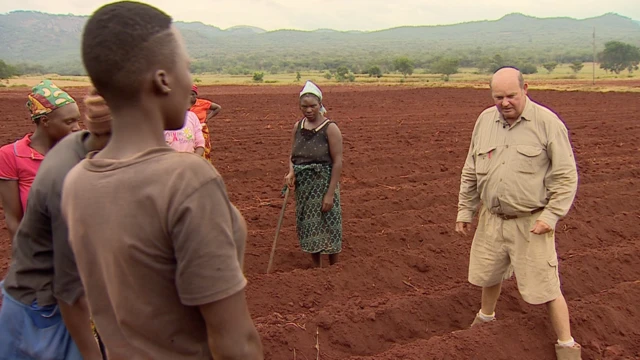White farmers in Zimbabwe get their first compensation payments for land grabs.
- 1108 Views
- admin
- April 11, 2025
- Latest News NEWS
A US$3 million (£2.3 million) initial payout has been promised by the Zimbabwean government to white farmers whose farms were taken over more than 20 years ago as part of a contentious government initiative.
It is the first payment under the 2020 compensation deal that Zimbabwe agreed to pay $3.5 billion (£2.6 billion) for farmland that was stolen, as agreed upon by the state and local white farmers.
Between 2000 and 2001, thousands of white farmers were forcibly removed from their land, frequently with brutality.
Although the seizures were intended to address land grabs from the colonial past, they also harmed ties with the West and led to the nation’s economic downfall.
Out of the 740 former farm owners whose compensation had been approved, the first 378 farmers will get the payout that was announced on Wednesday.
It amounts to one percent of the $311 million allotted for the initial payment batch.
According to Finance Minister Mthuli Ncube, the remaining amount will be paid with Treasury bonds denominated in US dollars.
“One of our commitments as we try to reform the Zimbabwean economy, to clear our arrears, is really to compensate the former farm owners who lost their farms during the land reform programme,” he stated.
“We have now begun to honour that agreement.”
 More farmers have now expressed interest in applying for the compensation, according to Harry Orphanides, one of the farmers’ representatives.
More farmers have now expressed interest in applying for the compensation, according to Harry Orphanides, one of the farmers’ representatives.
Most former farmers, however, have not enrolled in the agreement and are still retaining their title deeds.
The government has refused to pay for the land itself, claiming colonialists wrongfully took it, and has only agreed to reimburse former farm owners for “improvements” made on the property.
Under several discussions, it has given foreign-owned farms priority.
Zimbabwe started compensating foreign investors whose farms were safeguarded by bilateral investment agreements in January.
Decades of white-minority rule came to an end in 1980 when Zimbabwe attained independence. Approximately 4,000 white farmers held the majority of the nation’s most fertile land at the time.
Following colonial-era practices that forced thousands of black farmers off their land and reserved the nation’s most fertile areas for white people, land reform aimed to redistribute white-owned property to black farmers.
International censure was triggered in 2000 when then-President Robert Mugabe encouraged land invasions by a combination of government forces and vigilante groups.
After overthrowing Mugabe in a coup in 2017, President Emmerson Mnangagwa attempted to negotiate a rapprochement with Western powers.
Although Mnangagwa has stated that land reform cannot be undone, he has pledged to make amends as a crucial step in repairing relations with the West.
The faltering economy of the southern African nation has a massive amount of foreign debt because it has been shut out of the global banking system for over 20 years.
The land payment, according to analysts, is a critical step in mending Zimbabwe’s ties with Western countries and averting international sanctions.
Read More: Priyansh Arya’s six-hitting parade in IPL 2025 exposes deep cracks in CSK’s defense.



